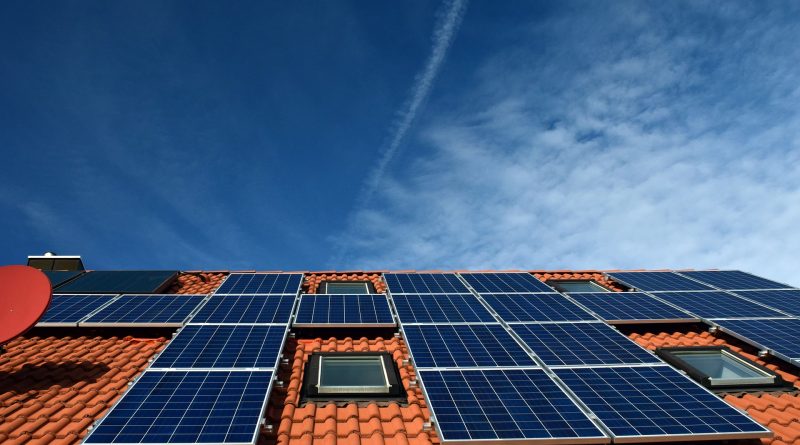Ministry of New and Renewable Energy: Solar Insights
The Ministry of New and Renewable Energy, under the Government of India, plays a crucial role in promoting and developing sustainable energy sources in the country. With its focus on reducing dependence on fossil fuels and addressing environmental concerns, the ministry has been instrumental in driving India’s transition towards a cleaner and greener energy future. This blog explores the key initiatives, policies, and achievements of the Ministry of New and Renewable Energy (MNRE) and highlights its significance in the overall development of renewable energy sources in India.
Table of Contents
Renewable Energy Potential in India
India, being one of the fastest-growing economies in the world, has a colossal appetite for energy. The country’s ever-increasing energy demand poses challenges in terms of availability, affordability, and sustainability. Recognizing these challenges, the MNRE has been actively promoting renewable energy sources to meet the burgeoning demand while minimizing the environmental footprint.
India is blessed with abundant renewable energy resources, including solar, wind, hydro, biomass, and geothermal. The MNRE has harnessed this potential through various interventions, such as favorable policies, financial incentives, and technological advancements, to make renewable energy an integral part of the country’s energy mix.
Policies and Initiatives
The MNRE has introduced several visionary policies and initiatives to support the growth of renewable energy in India. The National Solar Mission, launched in 2010, aims to establish India as a global leader in solar energy. Under this mission, the government has set ambitious targets to achieve 175 gigawatts (GW) of installed renewable energy capacity by 2022, with 100 GW dedicated to solar power.
To facilitate the implementation of these targets, the ministry has introduced various measures, including accelerated depreciation, generation-based incentives, viability gap funding, and the provision of low-cost financing options. These policies have not only attracted investments but also fostered the growth of domestic industries, leading to job creation and economic development.
Promoting Solar Power
Solar power has been a key focus area for the MNRE, given India’s vast solar potential. The ministry has implemented various programs, such as the Jawaharlal Nehru National Solar Mission, to promote solar power generation across the country. As a result, India has witnessed a significant increase in solar capacity, with the installed capacity exceeding 40 GW as of 2021.
The MNRE has also introduced innovative measures to encourage the adoption of solar power by households, industries, and government institutions. These include rooftop solar schemes, grid-connected solar power plants, and solar parks that provide the necessary infrastructure and regulatory support.
Development of Wind Energy
Wind energy is another major renewable resource that has been harnessed effectively by the MNRE. India has emerged as one of the top five wind energy producers globally, with an installed capacity of over 40 GW. The ministry has actively promoted the wind sector through policies, such as the Wind Energy Programme, which encourages both onshore and offshore wind power projects.
To attract investments and boost the manufacturing of wind turbines, the MNRE has provided incentives such as generation-based incentives, accelerated depreciation, and repowering policies. These measures not only enhance the share of wind energy in the country’s energy mix but also contribute to job creation and technological advancements.
Hydro and Biomass Energy
The MNRE recognizes the importance of harnessing the potential of hydro and biomass energy sources. India has a significant hydroelectric potential, and the ministry has been facilitating the development of small, medium, and large hydroelectric projects across the country. Additionally, biomass power plants that use agricultural waste and organic residues as fuel have been promoted to utilize the abundant biomass resources available in India.
Through policy incentives and technology advancements, the MNRE aims to leverage these resources to contribute to the renewable energy capacity of the country. This not only reduces the dependence on conventional energy sources but also addresses rural energy needs and promotes sustainable agricultural practices.
Achievements and Future Outlook
The efforts of the MNRE have yielded significant achievements in the renewable energy sector. India has made remarkable progress towards achieving its renewable energy targets, with a substantial increase in the installed capacity and a significant reduction in the cost of renewable energy generation. The country has emerged as one of the world’s largest renewable energy markets, attracting investments from both domestic and international players.
Looking ahead, the MNRE plans to continue its focus on solar and wind energy, while also exploring new avenues such as tidal, geothermal, and ocean energy. The ministry aims to enhance research and development activities, promote energy storage solutions, and strengthen grid integration mechanisms to ensure a seamless transition towards a sustainable energy future.
Conclusion
Unlock solar insights with SolarClue® and MNRE, your guide to renewable energy. Discover MNRE’s initiatives and policies supporting solar adoption in 2024. Stay informed about the latest announcements, schemes, and incentives for accurate decision-making. Navigate MNRE guidelines with SolarClue® for compliance and smooth approvals. Understand the ministry’s vision, long-term plans, and technological advancements shaping the future of solar energy in India. Maximize financial benefits with insights into MNRE’s incentives and subsidies. Leverage support for research and development, exploring grants and innovation opportunities. Participate in MNRE-sponsored events and training for knowledge exchange and skill development. Collaborate with SolarClue® and MNRE for accurate, reliable, and timely solar information, creating a synergistic platform for mutual benefit.
Frequently Asked Questions
SolarClue® highlights MNRE’s role in promoting solar energy, offering insights into initiatives and policies supporting solar adoption in 2024.
SolarClue® keeps users informed about MNRE’s latest announcements, schemes, and incentives related to solar energy, ensuring accurate and up-to-date information for those considering solar installations in 2024.
SolarClue® assists users in navigating MNRE guidelines and regulations, providing guidance on compliance, and facilitating a smooth process for approvals in 2024.
SolarClue® supports users in understanding MNRE’s vision for the future of solar energy in India, providing insights into long-term plans, targets, and advancements in technology supported by the ministry in 2024.
SolarClue® explains MNRE’s financial incentives and subsidies for solar projects, guiding users on how to avail these benefits and maximize financial returns in 2024.
SolarClue® assists users in leveraging MNRE’s support for research and development in the solar sector, providing information on grants, collaborations, and opportunities for innovation in 2024.
SolarClue® helps users participate in MNRE-sponsored events, workshops, and training programs related to solar energy, fostering knowledge exchange and skill development in 2024.
SolarClue® collaborates with MNRE to ensure accurate and reliable information on solar energy, aligning its resources and content with the ministry’s goals and guidelines in 2024.
SolarClue® guides users in understanding the impact of MNRE’s initiatives on the overall growth of the solar industry in India, providing insights into market dynamics and opportunities in 2024.
SolarClue® collaborates with MNRE to ensure its community members receive timely updates, resources, and support related to solar energy, creating a synergistic platform for mutual benefit in 2024.




